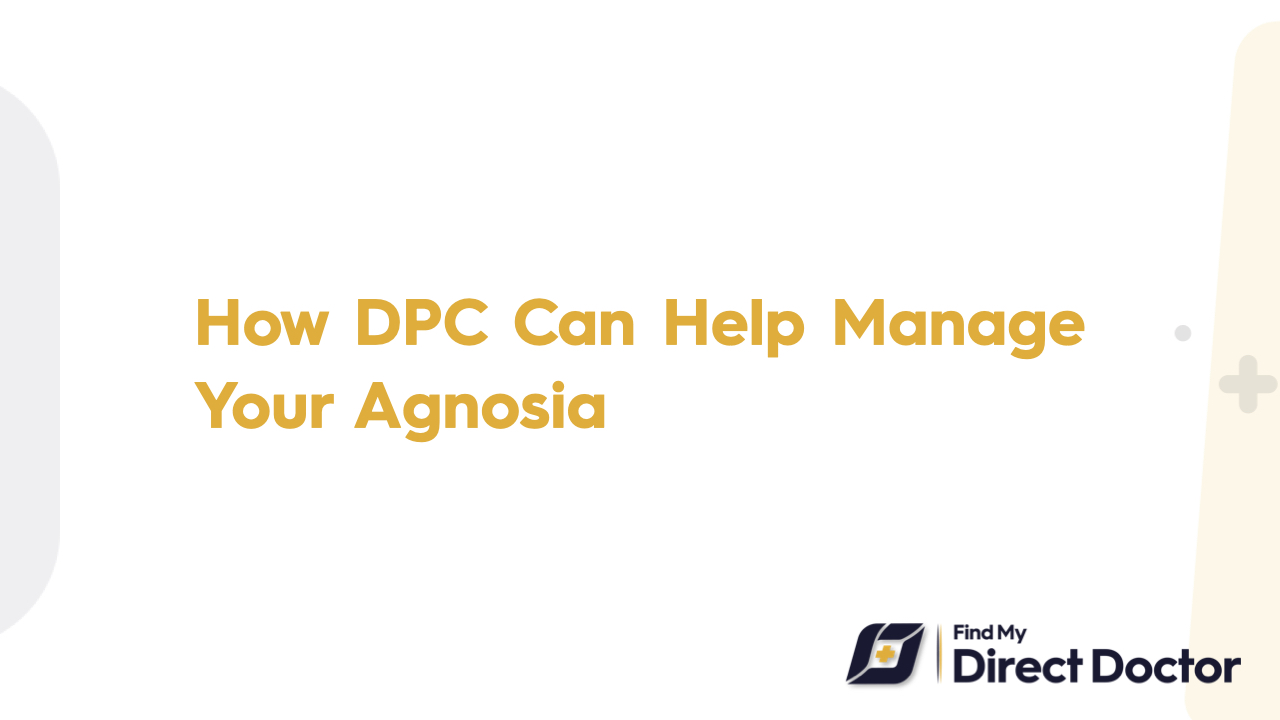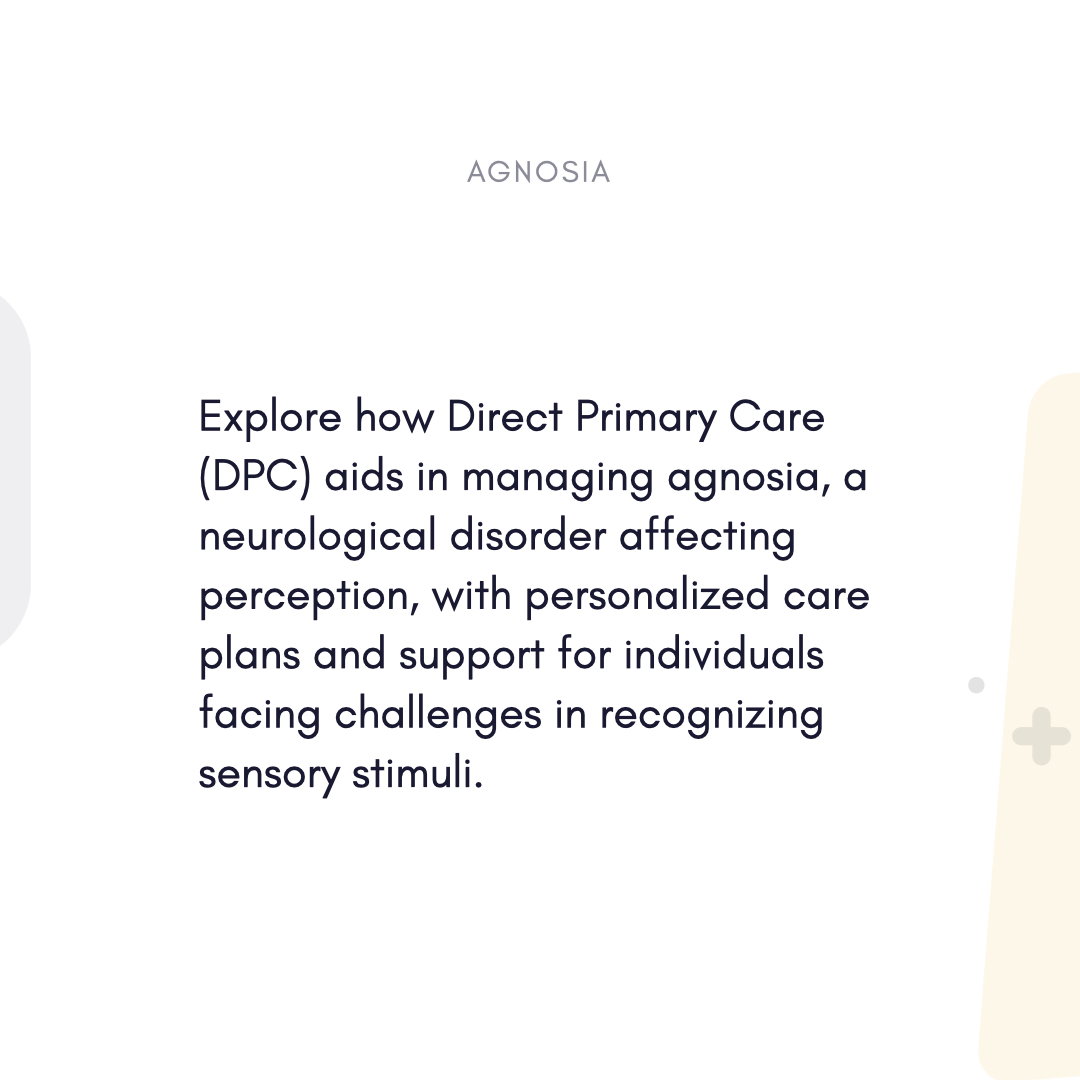



In spite of intact sensory pathways, individuals with agnosia cannot recognize or interpret sensory information, such as objects, people, or sounds. Each individual facing agnosia faces unique challenges, which require a multidisciplinary approach and personalized care. Those living with agnosia can greatly benefit from Direct Primary Care (DPC), a patient-centered healthcare model. In order to effectively manage agnosia, DPC plays a crucial role.

Brain damage caused by stroke, traumatic brain injury, neurodegenerative diseases, or other neurological conditions can cause agnosia, affecting various sensory modalities, including visual, auditory, tactile, and olfactory. Each type of agnosia presents unique challenges in perception and recognition, including visual agnosia, auditory agnosia, and tactile agnosia.
DPC models allow patients direct access to their primary care providers, facilitating a comprehensive evaluation and accurate diagnosis of agnosia. In order to determine the underlying cause of a patient's sensory deficits, DPC providers work closely with neurologists and other specialists.
It is often necessary to coordinate care among neurologists, neuropsychologists, occupational therapists, and other healthcare professionals to manage agnosia. To ensure optimal treatment outcomes, DPC providers ensure seamless communication and collaboration among members of the patient's healthcare team.
As a result of agnosia, a person's daily life and functioning can be profoundly impacted. Agnosia patients and their families receive holistic support from DPC providers, which addresses not only physical needs, but also emotional, social, and cognitive needs.
Patients with agnosia can benefit from cognitive rehabilitation strategies to compensate for their perceptual deficits and improve their functional abilities. Each patient's rehabilitation program is designed by DPC providers in collaboration with neuropsychologists and occupational therapists.
Agnosia patients can improve their independence and quality of life by utilizing assistive devices and adaptive techniques. Adaptive techniques and assistive technologies are recommended by DPC providers based on the patient's living environment and daily activities.
Caregiver Education and Support: Agnosia can also create challenges for caregivers who may have difficulty understanding and supporting their loved ones. Caregiver education and support are provided by DPC providers to enable them to better care for agnosia patients and promote their well-being by equipping them with knowledge and coping strategies.

Individuals with agnosia can benefit from Direct Primary Care in significant ways. DPC empowers agnosia patients to navigate their condition with dignity and resilience by providing comprehensive evaluation, care coordination, rehabilitation, and caregiver support. This patient-centered approach to healthcare will allow agnosia patients to receive the specialized attention and support they need in order to maximize their quality of life and maintain their independence.
Previous Post